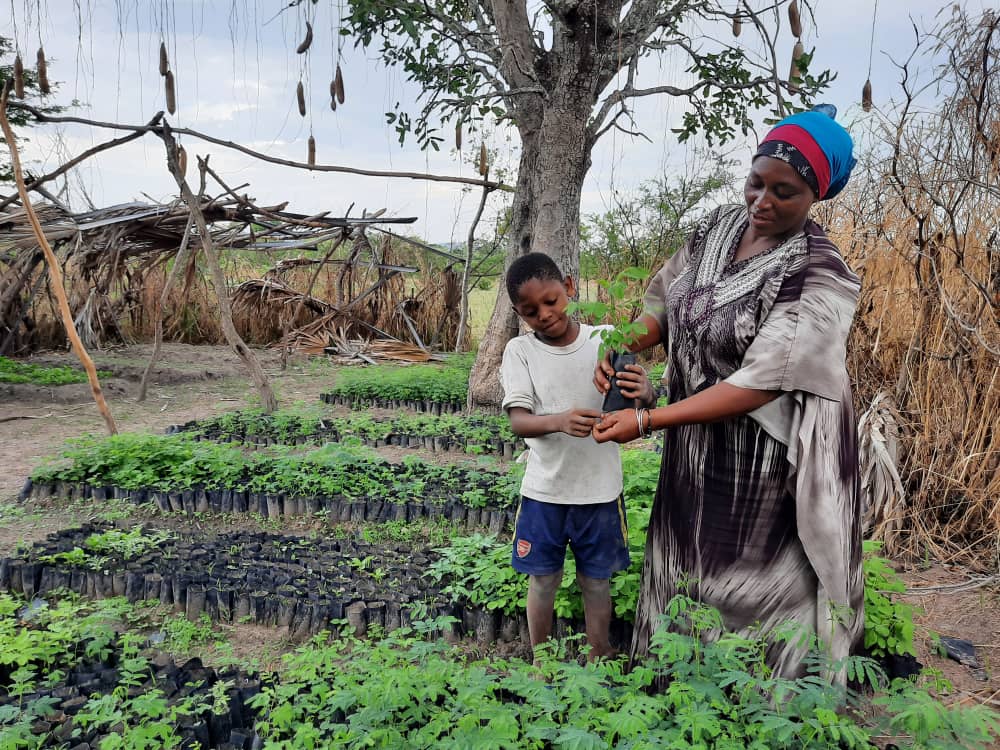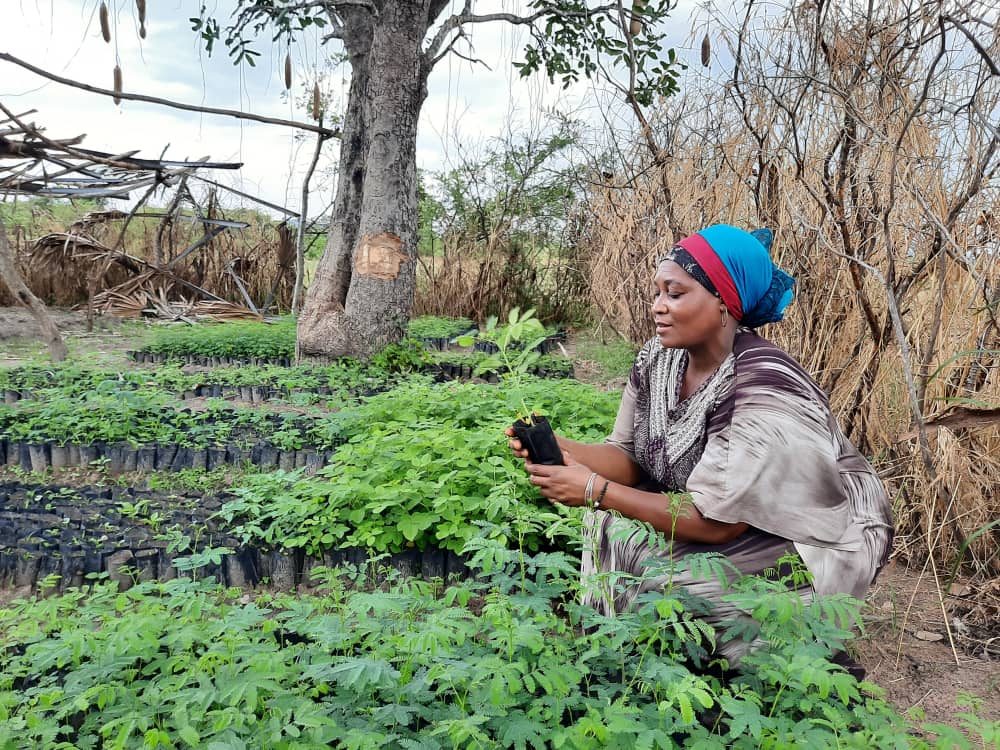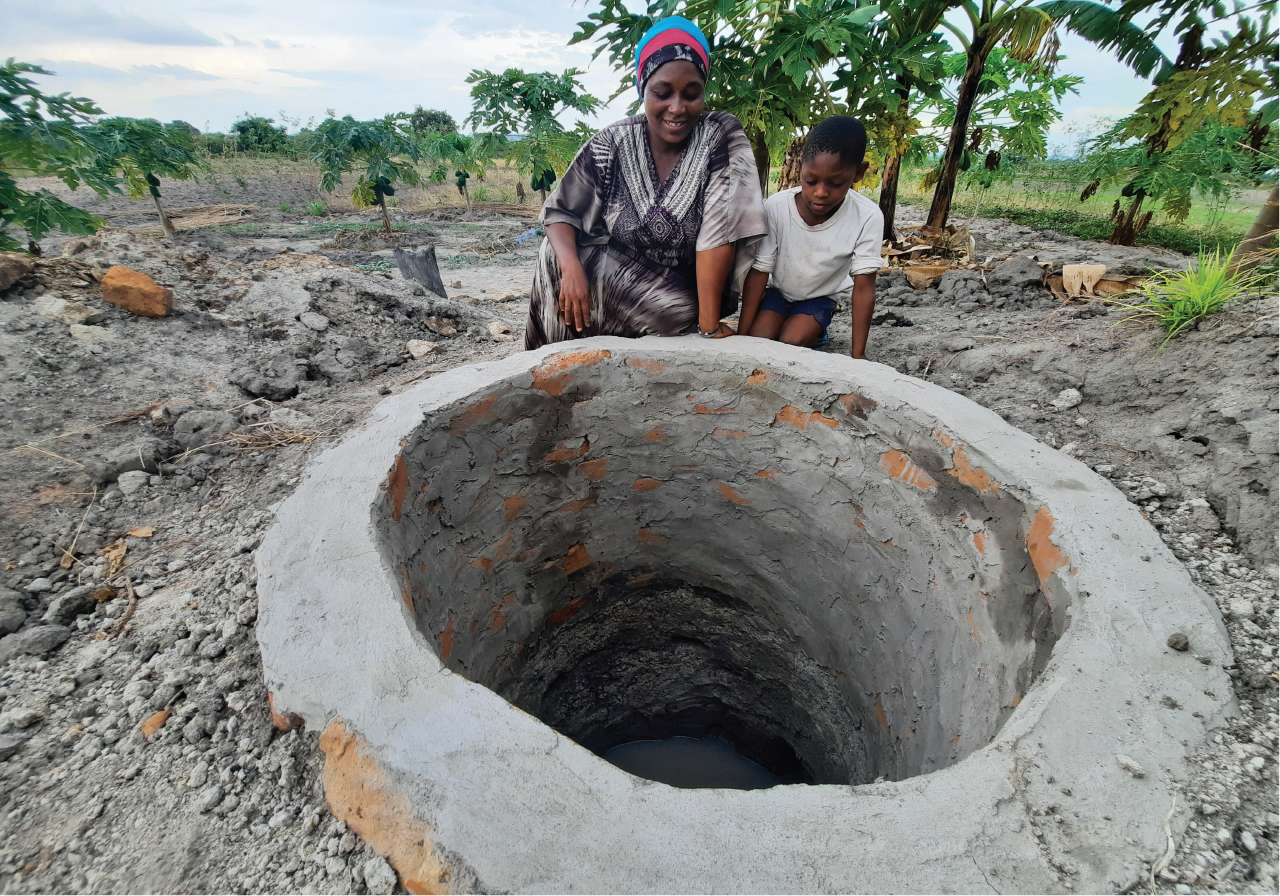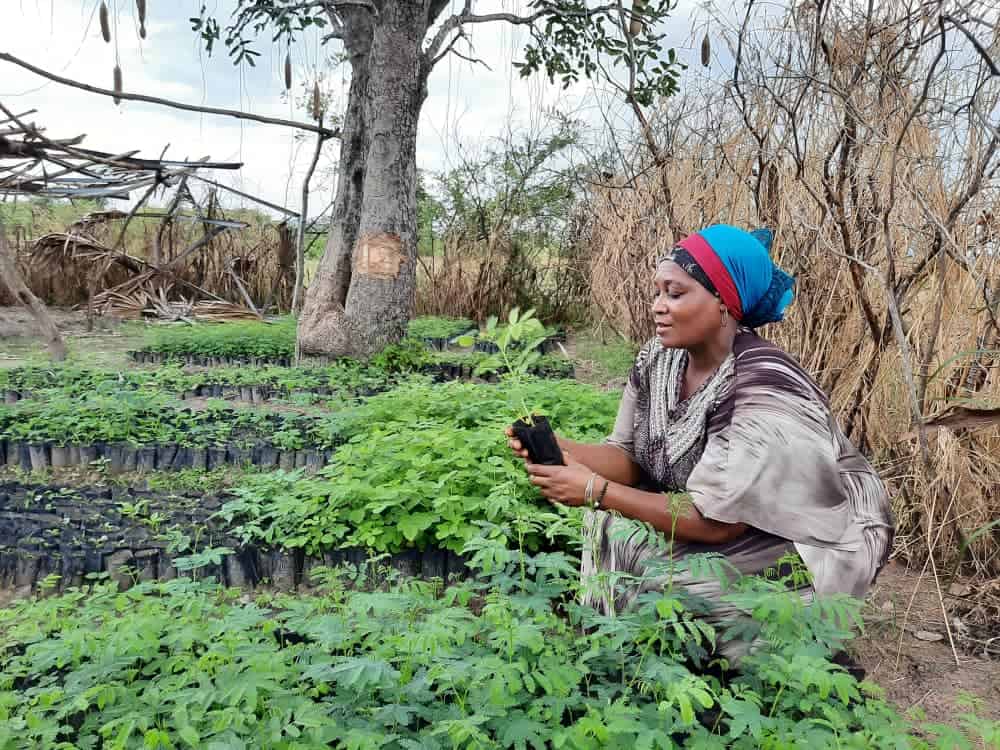“Pigeon peas, spinach, lettuce, okra, onions, papaya, passion fruit, avocado, timber trees, living fence… all these components which I have just mentioned, were not here before,” she says.

Before, Salma grew maize, sweet potatoes, and pumpkins. Her farm, like many farms around the world, was losing valuable soil and biodiversity every day as a result of deforestation and unsustainable practices, making it difficult and expensive for her to successfully grow crops.
Salma is the leader of the Tubadilike Farmer Group. She and her 14 fellow farmers joined nonprofit Trees for the Future’s (TREES) Forest Garden program in 2019. Halfway through this four-year program, Salma and her neighbors have learned how to use trees and sustainable farming practices to regenerate their land and thrive off of it. The results are clear.
“TREES, through its Forest Garden Approach has added new varieties of trees, vegetables, food and nutrition base to my family,” Salma says.

Local TREES staff train farmers like Salma in the Forest Garden Approach, teaching them how to establish tree nurseries, protect and improve their land with trees, and to diversify what they grow so that they have more to eat and sell.
“They taught me the importance of protecting my land, growing agroforestry seedlings, intercropping, permagardening for the family and for the market, and land revitalization techniques like alley cropping and contour farming.”
Salma, who didn’t have any fruit trees on her land before the program, says there was a lot to learn in the first year, but that the training she and her group received has given them a better understanding of how to care for their land.
“All my group members are comfortable with all species grown in their Forest Gardens and [are] enjoying the fruits of joining this beautiful approach,” Salma says. “Their land is becoming more productive and their incomes are going high.”
Salma is particularly excited about her well. As part of this project, TREES staff assisted Salma and other participants in updating their wells so that they’d have reliable access to water throughout the year.

From improved nutrition to being able to afford school fees, Salma says her Forest Garden has changed her life forever.
“Now I am proud to share with others about what crops, trees, and vegetables belong to my Forest Garden. This program is good and will keep sustaining my family forever,” she says.
Plant trees and empower more farmers like Salma, donate to Trees for the Future today.
